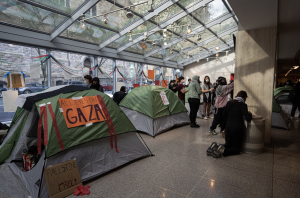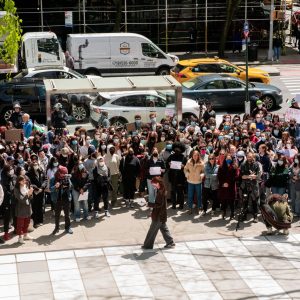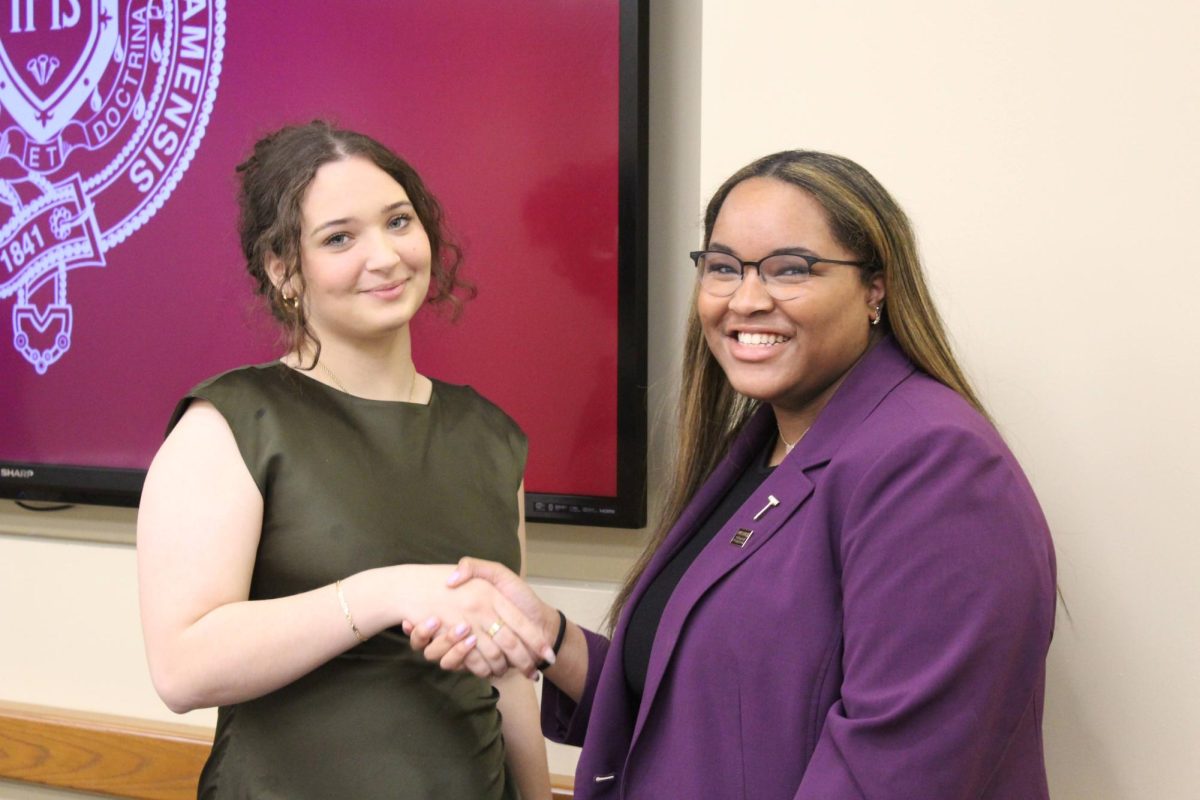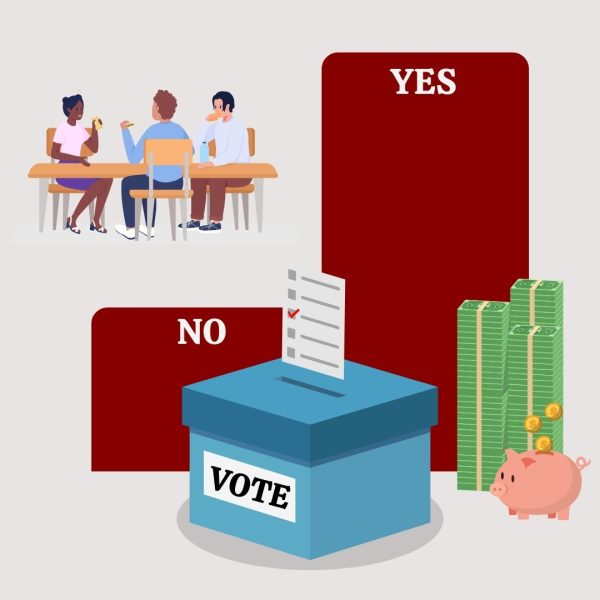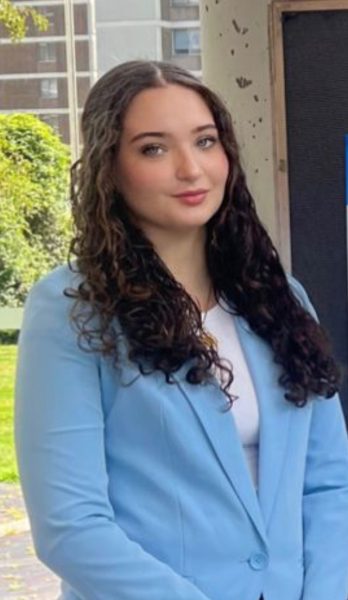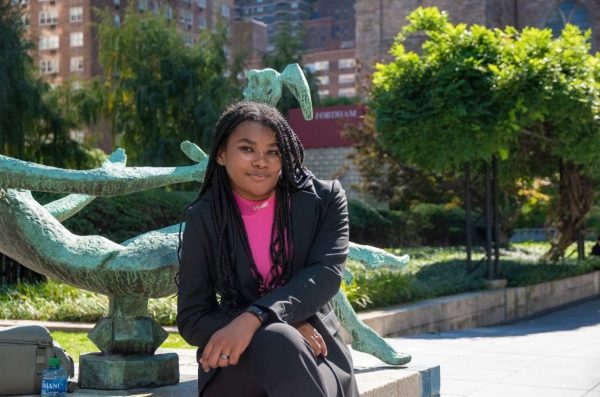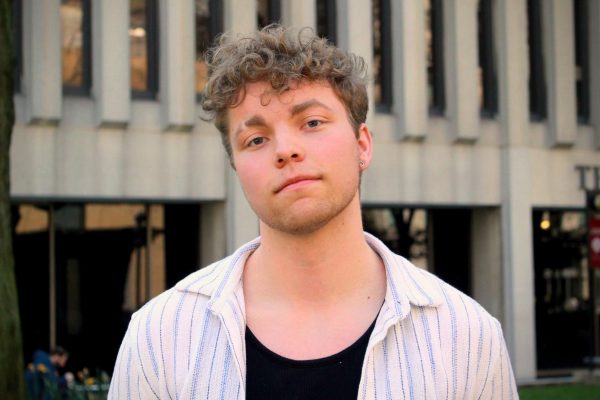Presidential candidates for United Student Government (USG) debated a wide range of topics as Fordham College at Lincoln Center (FCLC) prepared to vote for next year’s student representatives on April 24 and 25.
The debate, held on April 23, was hosted by The Observer and moderated by Managing Editor Stevie Fusco, FCLC ’25.
Who are the Candidates?
Lydia Williams, FCLC ’25, participated in USG throughout her time at Fordham, but stepped away last year. Williams is back and she dubbed herself “the change-maker candidate.”
Fiona Shehu, FCLC ’25, is a self-described native New Yorker — Bronx-born and Queens-raised. Despite this past year being her first in USG, she is the current vice president.
Vision for USG’s Future
Both candidates hope to bolster USG participation. Shehu said she sees USG as a group that is “here to uplift students rather than being this hierarchical thing.”
Williams drew upon her experience as an orientation leader and said that, “we are more than your student government. Everyone is a member of USG.”
Both expressed interest in raising student awareness surrounding events, but particularly elections. Williams said that voting does matter, but that USG is also more than that — it’s about “making sure that people have the resources that they need to be successful on our college campus.”
“We need tuition transparency,” Shehu said. She said that because a lot of other major universities have tuition transparency policies, “the fact that Fordham does not raises some questions.”
Club Involvement
When it comes to non-academic student activities, both candidates noted their dedication to making sure that clubs remain strong and populated.
Shehu said that she has experience working to build club initiatives, referencing multiple fundraisers through which she helped raise over $2000 in total.
She said that USG needs to take an active role in reposting and supporting student clubs — and that they ought to do the work of “emphasizing the importance of community.”
Williams said that she wants more clubs to make it clear how they will benefit students through all four years at Fordham. She said that bringing in, mentoring and teaching students about club functions ensures their future.
Response to Tuition Increases
With the recent announcement of a 4.4% increase in tuition for the 2024-25 academic year, the candidates fielded questions about how they plan to deal with tuition hikes at Fordham.
“We need tuition transparency,” Shehu said. She said that because a lot of other major universities have tuition transparency policies, “the fact that Fordham does not raises some questions.”
Williams also said that financial transparency has become one of her top priorities.
Representing her constituents “by constantly being in communication with them” would be Williams’ strategy, she said.
Proper Representation
Both candidates demonstrated a desire to respond to the student body’s concerns.
Shehu said she will be available to students by “being open, respectful and inviting.” She said she wants to be “willing to listen no matter what I’m doing. I’m always a representative.”
Similarly, Williams said that one of her initiatives would be to hold presidential office hours in public, by using common areas on campus.
Representing her constituents “by constantly being in communication with them” would be Williams’ strategy, she said.
Campus Improvements
Students often cite food on campus as a deeply unsatisfactory aspect of FCLC.
Williams said that “part of improving the (residence halls) is being able to eat past 10 p.m. on campus.”
Williams also said that she hopes to explore options for extending food availability hours while keeping in mind the needs of facility and dining hall employees.
Utilizing campus space is on Shehu’s platform also. She said that she wants to open underutilized spaces on campus, such as lounges in residence halls, to non-resident students. She also said that she would be interested in extending library hours.
Whether it’s opening the doors, or putting more seats at the table, Williams said that she wants to have students in the room informing decisions.
Disagreeing With Administration
In the Q&A portion of the event, one student asked how comfortable each candidate was with disagreeing with administration in order to faithfully represent the desires of the student body.
Williams said she was comfortable confronting disagreements, and that the mantra “Nothing about us, without us,” guides her actions.
Whether it’s opening the doors, or putting more seats at the table, Williams said that she wants to have students in the room informing decisions.
Shehu agreed, and said that she too was “very comfortable with going against administration.”
Part of the role of president is educating the administration, Shehu said.
“A lot of us have faced certain stereotypes,” she said. “We should not learn to live with it. We should not learn to accept it.”
Both candidates agreed that minority voices ought to be heard and amplified.
Why Them?
As the final question of the debate, each candidate pitched themselves to their constituents.
Shehu said that she considers herself to be someone who understands and listens to the student body. She said that, following her term, if the student body could say: “hey, she really cared about us,” she would consider it a job well done.
“I just really want to be there for every student,” Shehu said.
Williams said that she wanted to be remembered for her contribution of emotional intelligence. She reiterated that the student body may consider her “the change-maker candidate,” and remember her willingness to “use as many resources as possible to do that.”
Where to Vote?
Students can cast their vote by signing in here with their Fordham username and navigating to the “Elections” tab at the top of the screen. Polls close Thursday, April 25 at 5 p.m.

